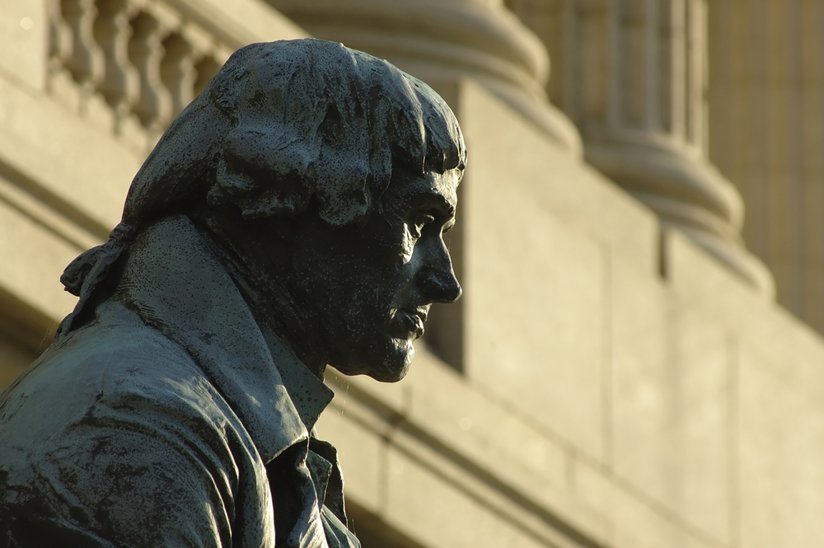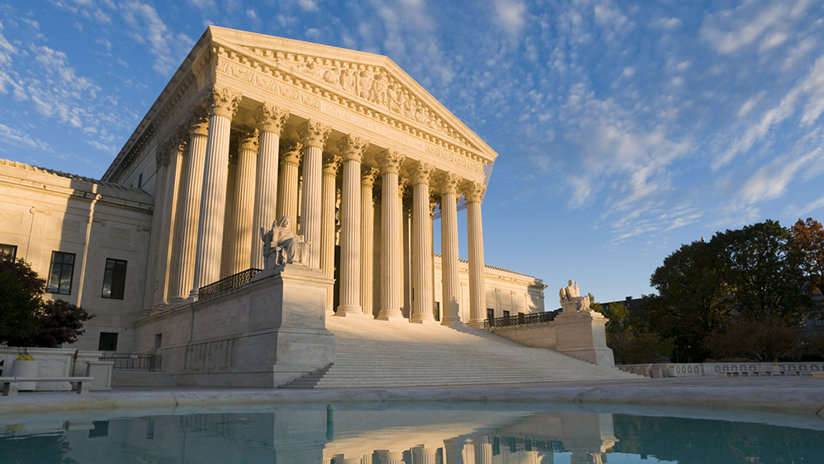
-
HOME
-
WHAT IS STANDOur Mission Our Values Our Help Contact
-
WHAT WE FIGHT FORReligious Freedom Religious Literacy Equality & Human Rights Inclusion & Respect Free Speech Responsible Journalism Corporate Accountability
-
RESOURCESExpert Studies Landmark Decisions White Papers FAQs David Miscavige Religious Freedom Resource Center Freedom of Religion & Human Rights Topic Index Priest-Penitent Privilege Islamophobia
-
HATE MONITORBiased Media Propagandists Hatemongers False Experts Hate Monitor Blog
-
NEWSROOMNews Media Watch Videos Blog
-
TAKE ACTIONCombat Hate & Discrimination Champion Freedom of Religion Demand Accountability
Thomas Jefferson and the Freedom to Believe
As a 7th grader, I visited the Jefferson Memorial in Washington, D.C., where there is a quote in HUGE letters around the inner dome of the building.
It reads: “I have sworn upon the altar of god, eternal hostility against every form of tyranny over the mind of man.”
When I read those words, a chill ran down my spine. For reasons I didn’t then understand, I was moved to tears. Later in life, I realized how closely Jefferson’s words align with the spirit of Scientology and my own deeply held beliefs.

After discovering firsthand the effectiveness of Scientology tools for bettering one’s life, I concluded I had stumbled upon the ultimate self-help practice. It was years later that I came to understand Scientology’s even higher value as an applied religious philosophy capable of freeing the mind and soul of man from “every form of tyranny.”
The spinmeisters who gleefully proclaim the purpose of Scientology to be quite the opposite would surely not be endorsed by Jefferson, were he alive today. He believed the religious beliefs and practices of others to be sacrosanct, as evidenced by this from a letter Jefferson wrote to Edward Dawse in 1803: “I never will, by any word or act, bow to the shrine of intolerance, or admit the right of inquiry into the religious opinions of others. On the contrary, we are bound, you, I, and everyone, to make common cause, even with error itself, to maintain the common right of freedom of conscience. We ought with one heart and one hand hew down the daring and dangerous efforts of those who would seduce the public opinion to substitute itself into… tyranny over religious faith.”
The battle for freedom of belief Thomas Jefferson fought so many years ago continues to this day.
This idea was not universally agreed to by Jefferson’s contemporaries. What follows is an excerpt from a letter he wrote to Dr. Benjamin Rush in the year 1800 (the source of his celebrated “eternal vow” quote). In it he proclaims his opposition to those pushing for the establishment of an official state religion.
“The returning good sense of our country threatens abortion to their hopes, and they believe that any portion of power confided to me, will be exerted in opposition to their schemes. And they believe rightly; for I have sworn upon the altar of god, eternal hostility against every form of tyranny over the mind of man. But this is all they have to fear from me: & enough too in their opinion, & this is the cause of their printing lying pamphlets against me… which are absolute falsehoods without a circumstance of truth to rest on…”
Jefferson was attacked and misrepresented in his day by those who sought to impose their form of tyranny over their fellows. In our time, the Church of Scientology is attacked and misrepresented for the same reason. Those behind the attacks on Scientology have good reason to fear Scientology, the same reasons the enemies of the freedom of religion had to fear Jefferson so many years ago. Again, his words: “…they believe rightly that any portion of power confided to us will be exerted in opposition to schemes for further enslaving the minds and hearts of man.”
The battle for freedom of belief Thomas Jefferson fought so many years ago continues to this day. L. Ron Hubbard, the founder of Scientology, wrote that the price of freedom is “constant alertness and constant willingness to fight back.”
I believe freedom of belief is a God-given right, but it is up to us all to preserve that right. We must also resist those with “other plans,” who busily sow the seeds of hate in their efforts to divide and conquer.
May Thomas Jefferson’s and Mr. Hubbard’s words serve as a timely reminder.









